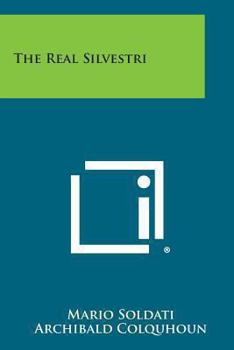The Real Silvestri
Select Format
Select Condition 
Based on Your Recent Browsing
Book Overview
The Real Silvestri is a novel written by Mario Soldati, originally published in Italian. The story follows the life of Silvestri, a successful businessman and entrepreneur, who is forced to confront his past when he receives a letter from a former lover. As Silvestri reflects on his life, he begins to realize that the success and wealth he has achieved may not be enough to fill the void left by his past mistakes and lost love. The novel explores themes of love, regret, and the pursuit of happiness, as Silvestri navigates his complicated relationships with the women in his life, including his wife, mistress, and former lover. Through flashbacks and introspection, the reader gains insight into Silvestri's character and motivations, as well as the societal pressures and expectations that have shaped his life. Soldati's prose is elegant and introspective, immersing the reader in Silvestri's world and emotions. The Real Silvestri is a poignant and thought-provoking novel that delves into the complexities of human relationships and the search for fulfillment in a materialistic world.This scarce antiquarian book is a facsimile reprint of the old original and may contain some imperfections such as library marks and notations. Because we believe this work is culturally important, we have made it available as part of our commitment for protecting, preserving, and promoting the world's literature in affordable, high quality, modern editions, that are true to their original work. This description may be from another edition of this product.
Format:Paperback
Language:English
ISBN:1494037386
ISBN13:9781494037383
Release Date:October 2013
Publisher:Literary Licensing, LLC
Length:190 Pages
Weight:0.58 lbs.
Dimensions:0.4" x 6.0" x 9.0"
Related Subjects
Ethics Ethics & Morality Law Practice Philosophy Politics & Social Sciences ReferenceMore by Mario Soldati
Customer Reviews
5 customer ratings | 5 reviews
There are currently no reviews. Be the first to review this work.






























